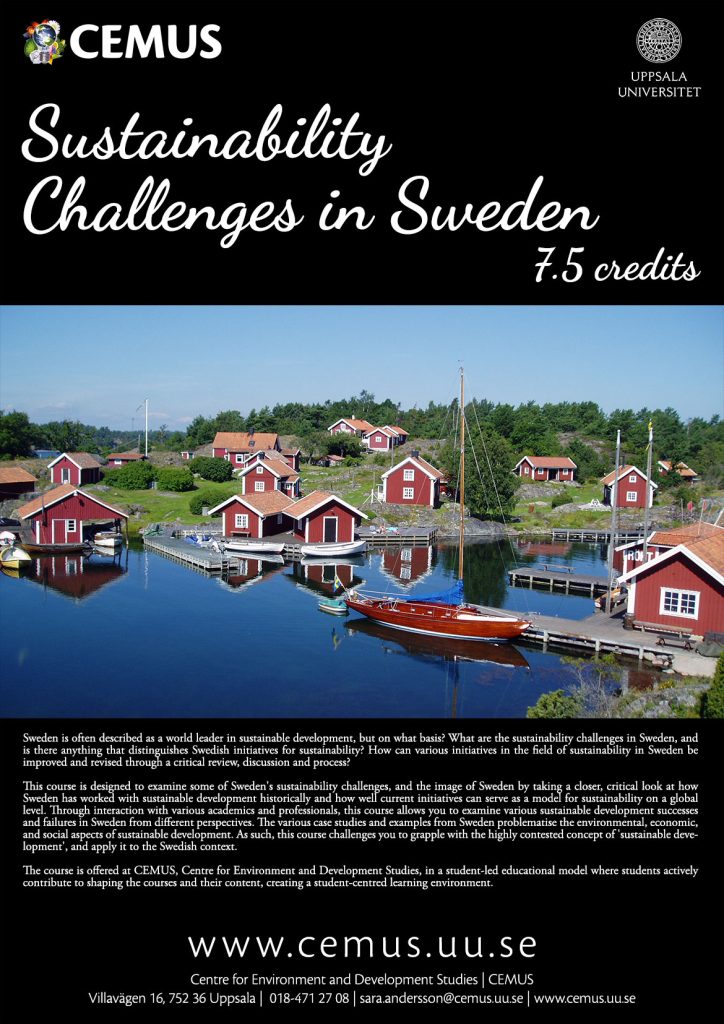Autumn 2025, 25%, Campus, Evening
Application at antagning.se »
Start date: 01 Sept 2025
End date: 18 January 2026
Application Deadline: 15 April 2025
Enrolment Code: UU-19506 Application
Language of Instruction: English
Location: Uppsala
Selection: Higher education credits (maximum 165 credits)
Entry Requirements: General entry requirements
Fees: If you are not a citizen of a European Union (EU) or European Economic Area (EEA) country, or Switzerland, you are required to pay application or tuition fees. Formal exchange students will be exempted from tuition fees, as well as the application fee. Read more about fees.
Application Fee: SEK 900
Tuition fee, first semester: SEK 16250
Tuition fee, total: SEK 16250
About the course
Sweden is often described as a world leader in sustainable development, but on what basis? What are the sustainability challenges in Sweden, and is there anything that distinguishes Swedish initiatives for sustainability? How can various initiatives in the field of sustainability in Sweden be improved and revised through a critical review, discussion and process?
This course is designed to examine some of Sweden’s sustainability challenges, and the image of Sweden by taking a closer, critical look at how Sweden has worked with sustainable development historically and how well current initiatives can serve as a model for sustainability on a global level. Through interaction with various academics and professionals, this course allows you to examine various sustainable development successes and failures in Sweden from different perspectives. The various case studies and examples from Sweden problematise the environmental, economic, and social aspects of sustainable development. As such, this course challenges you to grapple with the highly contested concept of ‘sustainable development’, and apply it to the Swedish context.
This course overlaps with the course Critical Perspectives on Sustainable Development in Sweden (1MV072) and cannot be used in the same degree.
CEMUS
The course is offered at CEMUS, the Centre for Environment and Development Studies, in a student-led educational model where students actively contribute to shaping the courses and their content, creating a student-centred learning environment.
Syllabus
Link to syllabus.
Archive

